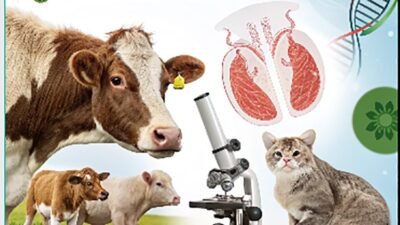If you’re looking to enhance your understanding of enzyme-linked immunosorbent assay (ELISA), the course "ELISA Principles and Applications for Professionals" on Udemy is an excellent resource. This comprehensive course delves into the theoretical and practical aspects of ELISA, making it ideal for anyone interested in laboratory techniques related to healthcare, research, or biotechnology.
What you’ll learn
This course offers a wealth of information and practical skills that are essential for working with ELISA. By the end of the course, you’ll gain proficiency in:
- Understanding ELISA Principles: Develop a deep understanding of how ELISA works, including the biochemical mechanisms behind antigen-antibody reactions and assay variations.
- Designing Experiments: Learn how to design ELISA experiments tailored to specific research questions, which is crucial for obtaining reliable results.
- Interpreting Results: Acquire skills to analyze and interpret data from ELISA assays, including curve fitting and statistical analysis.
- Application in Various Fields: Explore the applications of ELISA in diagnostics, therapeutics, and research settings, enabling you to use this technique in diverse scenarios.
- Troubleshooting: Gain insights into common pitfalls and troubleshooting techniques to ensure the reliability and accuracy of your assays.
With these skills in hand, participants will be well-equipped to execute and evaluate ELISA experiments with confidence.
Requirements and course approach
Before enrolling, it’s recommended that participants possess a basic understanding of biology and laboratory techniques. While not mandatory, previous exposure to immunology can be beneficial in grasping advanced concepts more readily.
The course adopts a multifaceted approach to learning. It combines video lectures, visual aids, and practical demonstrations, which cater to different learning styles. The instructor encourages active participation by providing practical exercises and quizzes that reinforce the theoretical concepts introduced. This hands-on approach ensures that learners are not just passively absorbing information but engaging with the material actively.
Who this course is for
"ELISA Principles and Applications for Professionals" is designed for a diverse audience, including:
- Biotechnology and Pharmaceutical Professionals: Those involved in drug development or diagnostic testing will find this course invaluable for enhancing their technical skills.
- Laboratory Technicians and Researchers: Individuals who want to expand their knowledge of immunoassays and improve their laboratory techniques will benefit significantly.
- Students in Biomedical Sciences: Undergraduate or graduate students aiming to strengthen their understanding of laboratory methods relevant to their field.
- Healthcare Professionals: Doctors, nurses, or microbiologists seeking to broaden their diagnostic capabilities in clinical settings.
Regardless of your background, if you’re interested in mastering ELISA techniques, this course is tailored to suit your needs.
Outcomes and final thoughts
By the conclusion of this course, learners will have not only improved their understanding of ELISA but also developed practical skills that can be applied in real-world situations. The knowledge gained can open doors to new career opportunities in research and diagnostics.
In summary, "ELISA Principles and Applications for Professionals" is a well-structured course that combines theoretical concepts with practical application. Its engaging format and thorough content make it an excellent choice for anyone looking to deepen their knowledge and skills in this essential laboratory technique. Whether you’re beginning your career or looking to enhance your current expertise, this course provides a solid foundation for mastering ELISA.




